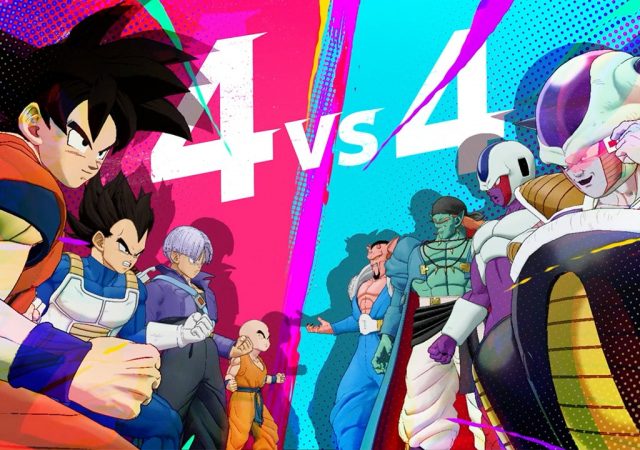[Game website] I am still a little in awe after watching the global debut presentation yesterday for EverQuest Next, deep in thoughts on how the game will really work out and conjuring up tons of other questions in my head. PC Gamer held a massive interview with the Lead Designer and Creative Director, so read on!
PC Gamer: A lot of the questions being asked by the community are related to standard MMO stuff. For example, are there levels?
Darrin McPherson, Lead Designer: So our progression system is not based on levels, it’s based on tiers. There’s a shallow tier pool, because one of our focuses is on horizontal gameplay. We definitely have vertical gameplay, where a player increases in power in a particular class, but remember, there’s 40 classes. There’s a lot of classes out there to gain, and each one of these is advanced individually.
It’s based on player accomplishments. It’s not skill based, so you don’t have to use your mace over and over again to level your mace skill up. But your tier three warrior, in order to advance to tier four, has to collect a full suit of tier three armor. You have to have spent enough points in that class. You have to have accomplished a certain amount of things in the game in order to have advanced.
It’s not grinding XP. It’s not completing a thousand quests or whatever it is. That’s just not how it is. And we reward you with advancement in lots and lots of different ways. Whether it be participating in a Rallying Call, or doing quests, or engaging in any emergent AI that happens to be near you.
Are there base stats that characters start with?
McPherson: Yeah, we call those attributes. The attribute system is completely different in this game. So, instead of all of your equipment giving you attributes, attributes aren’t found on equipment. Attributes are very rare things that you can work tremendously hard to modify.
Giving yourself a point of strength means that maybe you jump higher, or really significantly cool things…and that’s one of the things you can progress and earn in the game.
Jeff Butler, Creative Director: They affect your gameplay. For everyone. So, strength can be important for even a wizard.
So it’s not a matter of increasing DPS?
Butler: Not merely a matter of increasing DPS.
McPherson: Not merely. It will, and those things help, but intelligence doesn’t just increase the DPS for a wizard. Intelligence might be really good because it lets you swing wider with your weapons, or something like that.
Butler: Intelligence might not be useless for a warrior.
McPherson: Absolutely, it won’t be. So that was one of our goals, that attributes are useful to everybody.
So how do you discover new classes in the world? Read a tome?
McPherson: In any number of ways. It could be that you need to go and help a hermit, who happens to be a high level wizard. He has issues, you need to help him, and he may have a storyline we have created for him, but the emergent AI in the surrounding area influences the majority of that, so it’s never the same content you have to go through.
Butler: There could be a class that’s unlocked by unlocking a combination of classes.
McPherson: Right, the assassin trainer won’t give you the class until you’re a really high level rogue and you’ve done a whole bunch of things. And the paladin for example, [Dave Georgeson, Director of Development] mentioned a life of consequence.
If you haven’t been making the good choices and being an upright and justice influenced person, you can’t be a paladin. They won’t let you, because the game knows what you’re doing. So you have to live—in some of these classes, we restrict it to how you’ve been acting in the game.
Are there any really out there classes that you’ve designed or are thinking of?
McPherson: Oh, there’s definitely a lot we’ve been thinking about.
Butler: Out there classes, for sure. So, it’s not just that having a large number of classes gives you the opportunity to do that, but we’re avid game players. We have classes and archetypes from our favorite games in the past that we want to see living—we want to see our analogues of these character classes living in our own world.
McPherson: We’re not talking about a lot of the classes today…there’s obviously, as [David Georgeson] mentioned, the big number 40. There’s a lot of character classes out there.
A lot of people are interested in focusing in crafting. Can you tell us how it will work?
McPherson: So, we’re not ready to discuss the details of crafting, but we’re going to be playing in a very rich, deep world—as [David Georgeson] mentioned, you can take a weapon and make it out of multiple parts.
And, the reason you want to make it out of multiple parts is because each character class, and each multiclass build, will have different requirements and different ways that you can augment and fine tune it. Weapons have a huge role in that. Armor has a huge role in that.
Butler: Weapons are actually recognizable, for instance. With acuity and experience in the game, I can look at your weapon and I can tell what its properties are, just by looking at it.
McPherson: I can go, ‘Oh, I see what you’ve done. You’ve made it out of this material.”
Butler: I think the thing that’s additionally, extremely relevant as far as crafting is concerned is that exploring through the world is, in itself, a kind of element of crafting. We’re digging, we’re building. If we want to cross a chasm, build a bridge.
McPherson: I can tell you one of the things you won’t be doing as a crafter, and that’s making the same thing over and over and over again to advance your skill. That’s not how it will work.
Butler: We don’t expect the need to build 10,000 rifle barrels to become a grandmaster.
McPherson: It’s not a skill-based system, it’s very much like the system of advancing your classes. We have multiple tiers. You begin digging, you explore and you find, and those things give you progression and advancement that can be spent on your crafter.
So, to advance your blacksmith, you don’t have to only create many items over and over again. That’s not the way it works.
Butler: Another great example, we could be here in this room right now and want to destroy things. We might be able to destroy the walls with the weapons and materials we have, but not the floor. But there’s probably something that can destroy the floor, and we have to craft it—get better materials, put them together, and then start chewing through the floor to see what’s underneath us.
McPherson: And because of the way our world works, resources—if you’re an MMO player, copper is the newbie metal, it’s the metal you find right outside the starting city and eventually you don’t need it anymore. Because of the way our game works, copper is always useful, because copper has specific qualities. Iron is always useful, mithril is always useful. All of these things are always useful to you, depending on what you want to make.
If you want to make a weapon that does electrical damage, or a weapon that is really good against undead, you need to find the right material to make it out of, and that could be any of the materials you find in the world.
So, to better understand the Rallying Calls, I wasn’t clear on some things with David Georgeson’s example: say you’ve built a big city, and built these stone walls around it, and now an army has come for a siege. Is that something that happens over a couple hours, or a week?
McPherson: That army siege lasts until the players on the server have completed that stage.
Butler: Think about it as if you’re playing the game as if it were a book. So, you’ve started a new chapter. In this chapter, the army has arrived to lay siege to your city.
All the elements of the plot that you progress with, as the reader of the book, you’ll be progressing through those as a player in the game. There will be times where you need to be in the right place at the right time, and there will be situations that are drawn out over a longer period of time.
In general, Rallying Calls will be there, like a public quest, we intend for people to participate in them, right? So, simply defeating the enemy at the walls may be something that requires a day, two, may require a week. A siege implies that something would be fairly long lasting. A battle on the other hand [snaps fingers].
With the “emergent AI,” though, how can you maintain something indefinitely? If the army comes to attack, and is defeated outright in an hour or the players just ignore it, what then? Do you keep spawning enemies?
Butler: Until the things that spawn them are destroyed.
So, if orcs are released into the world and wander around looking for areas they like, they’re not coming from some point and spreading outward, they’re spawning from camps they set up?
McPherson: Right, perfect example. So in phase four of this Rallying Call, four large orc warband camps spawn in the hills. Those camps are literally swarming with orcs.
Butler: And they’re unassailable.
McPherson: Until you meet the requirements to move on to that next area and eliminate those. Then you and your army push past them and assault them in their homeland.
Butler: You try to fireball the palisade walls in the orc camps, but the fireball doesn’t take down the walls because you need catapults, because that’s what unlocks the next phase and gives you the ability to assault the camps directly.
So you build catapults. You and Darrin build a catapult, haul it out there and defend it while it’s lobbing rocks at the wall, and then you’ve contributed to your phase of a rallying call.
What happens if players don’t do any of this?
Butler: It’s simple, it doesn’t advance. So just like a chapter of a book, right? You’ve got your personal storyline, you’re playing through the game. Your personal contribution and the story that goes with it goes on at whatever pace you choose to pursue. The server has a storyline as well, expressed with these Rallying Calls. If players choose not to pursue them, the clock just doesn’t advance.
What’s the risk I take by pursuing them? If I’m killed, will I respawn nearby, or have to go collect my items from my corpse like back in the day?
McPherson: So, death penalty is not one of the things we’re ready to talk about yet, but there needs to be some amount of risk. There needs to be some amount of reward for doing hard things, and we’ll release more of that information in the future.
Here’s another from the community: will there be Frogloks?
Butler: Oh, too soon to say!
And are you talking about player housing yet?
McPherson: So, player housing in EverQuest Next is not something we’re talking about yet, but you can imagine, with Landmark and all the awesome building that will happen, what our player housing will be like in EverQuest Next.
Butler: The tool that we used to create the world is Landmark, right? So you have the same ability to build things that we do.










